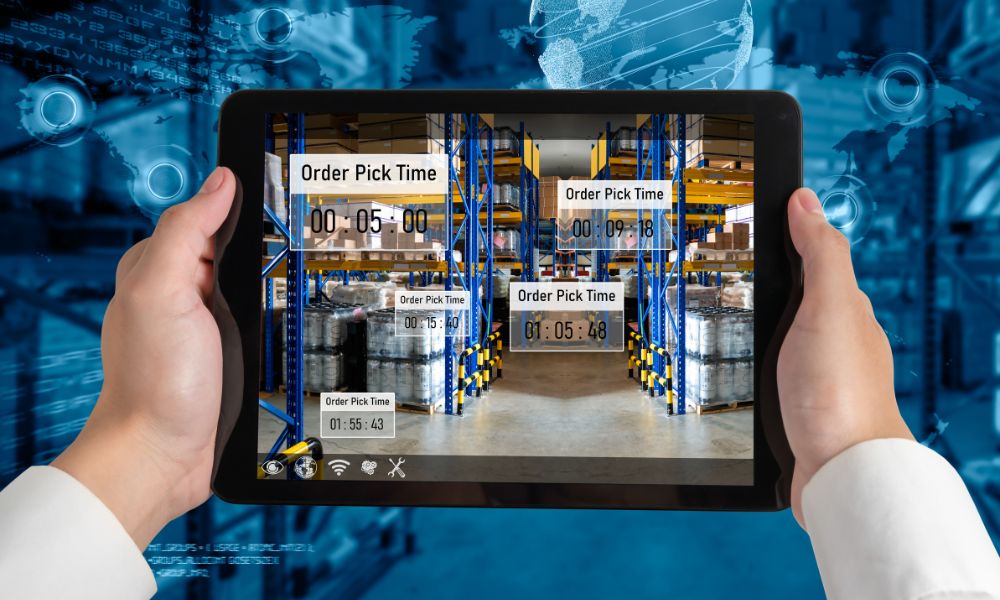Introduction:
Efficient warehouse management is no longer a luxury; it’s a necessity. In a competitive market, smooth operations, swift delivery, and optimized storage are crucial for success. This comprehensive store management training program equips you with the knowledge and skills to transform your warehouse into a high-performing engine that drives your business forward.
Course Objectives:
- Delve into the core principles and best practices of effective warehouse management, from inventory control to space optimization.
- Learn how to implement efficient receiving, put-away, picking ,packing, and shipping processes that minimize errors and maximize productivity.
- Leverage technology and data analytics to identify areas for improvement and implement data-driven solutions for enhanced efficiency.
- Develop strong leadership skills to motivate and empower your warehouse team, fostering a culture of collaboration and excellence.
- Design a warehouse layout that maximizes space utilization, minimizes travel time, and ensures smooth workflow.
Learning outcomes:
- Gain valuable insights and practical guidance from seasoned professionals with extensive experience in warehouse management and store management training.
- Real-world case studies: Analyze successful real-world examples and learn from the best practices implemented by leading organizations.
- Interactive exercises and role-playing: Apply your learnings through interactive activities and practice your leadership skills in realistic scenarios.
- Actionable tools and resources: Gain immediate access to practical tools, templates, and checklists to streamline your warehouse operations and improve overall efficiency.
Target Audience:
- Warehouse managers and supervisors: Enhance your skills in all aspects of warehouse management and leadership.
- Logistics and operations professionals: Optimize warehouse operations to ensure efficient and timely delivery of goods.
- Inventory control specialists: Gain a deeper understanding of inventory management strategies and techniques.
- Business owners and entrepreneurs: Elevate your warehouse management practices to drive business growth and profitability.
Course Outline:
Module 1: Fundamentals of Warehouse Management
- Introduction to warehouse management and its role in the supply chain.
- Key warehouse functions and processes.
- Different types of warehouses and their characteristics.
- Warehouse layout and space optimization principles.
- Introduction to warehouse management systems (WMS).
Module 2: Inventory Control and Management
- Inventory management principles and best practices.
- ABC analysis and cycle counting techniques.
- Inventory forecasting and demand planning.
- Minimizing stockouts and managing safety stock levels.
- Implementing effective stock rotation and FIFO practices.
Module 3: Receiving and Put-Away Processes
- Efficient receiving procedures for accurate incoming goods verification.
- Effective put-away strategies for optimal inventory storage and retrieval.
- Utilizing technology to streamline receiving and put-away activities.
- Managing returns and damaged goods.
Module 4: Picking, Packing, and Shipping
- Optimizing picking strategies for accuracy and speed.
- Implementing efficient packing methods to minimize space and cost.
- Shipping procedures and documentation.
- Integrating order fulfillment with transportation and logistics.
Module 5: Warehouse Technology and Automation
- Introduction to various warehouse technologies, including barcode scanners, WMS, and RFID.
- Leveraging automation to improve efficiency and accuracy.
- Robotics and automated storage and retrieval systems (ASRS).
- Data analytics and reporting for informed decision-making.
Module 6: Human Resource Management in Warehouses
- Effective leadership and team management skills for warehouse supervisors.
- Motivating and engaging warehouse employees.
- Building a positive and productive work environment.
- Training and development programs for warehouse staff.
Module 7: Safety and Security in Warehouses
- Implementing safety protocols to prevent accidents and injuries.
- Maintaining a clean and well-organized warehouse environment.
- Security measures for protecting inventory and assets.
- Emergency preparedness and response procedures.
Module 8: Continuous Improvement and Performance Measurement
- Key performance indicators (KPIs) for warehouse management.
- Identifying areas for improvement through data analysis.
- Implementing continuous improvement initiatives.
- Benchmarking against industry standards and best practices.
Module 9: Future Trends in Warehouse Management
- Emerging technologies and their impact on warehouse operations.
- Sustainability and environmental considerations in warehouse management.
- The future of the warehouse workforce and automation.

